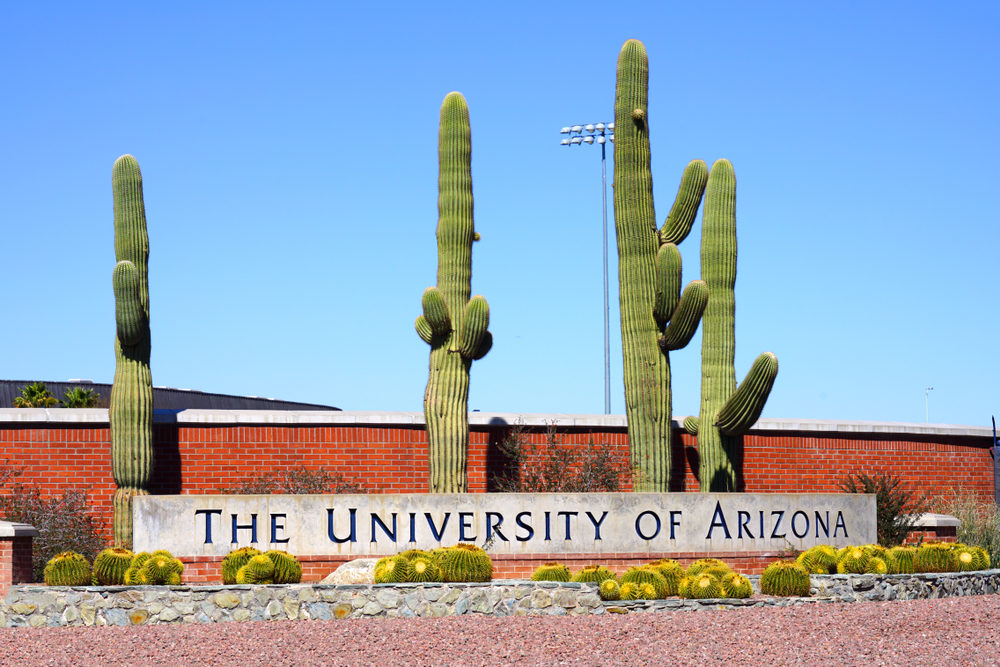Afterglow: A Startlingly Successful Fundraising Campaign Officially Ends, and the Gifts Keep Coming
/photo: EQRoy/shutterstock
A $1 million gift from Kathy G. Short and her husband Jerry to endow the director’s position of the University of Arizona’s (UA) World of Words (WOW), the largest collection of global literature for children and young adults in the nation, suggests that successful fundraising campaigns can live on in spirit well after the official end date.
Back in 2016, we reported that the UA had reached its $1.5 billion fundraising goal, Arizona Now, two years early. Its success demonstrated that strong local economies and the proliferation of wealthy alumni scattered across the country are helping to drive the growing fundraising prowess of regional universities.
When the campaign officially wrapped up on December 31, 2017, its final haul stood at $1.59 billion.
But if there’s anything we’ve learned about fundraising over the past few years, it’s that campaigns never truly end. A Ruffalo Noel Levitz survey of nearly 600 fundraising professionals, mostly in higher education, found that 80 percent of respondents worked at institutions where campaign fundraising has become an endeavor that is either ongoing or about to be initiated.
The reasons for this are self-evident. These campaigns are years in the making. To wind down the apparatus based on something as arbitrary as the calendar would represent a huge opportunity cost, especially when bills need to be paid, scholarships need to be funded, and the next campaign is always looming in the distance.
Indeed, according to the survey, “another oft-cited campaign goal was learning more about donors’ preferences and passions, partly to help set the stage for the next campaign.”
Commenting on UA’s record-breaking windfall, John-Paul Roczniak, vice president of development and chief development officer for the UA and president and CEO of the UA Foundation, confirmed this line of thinking. The school’s success was made possible by building on previous efforts, including, most recently, Campaign Arizona, which brought in $1 billion over an eight-year period ending in 2005.
“I'm immensely proud to be part of a university family that steps up again and again. We are so fortunate that the desire to give is ingrained in so many whose lives have been touched by the UA—alumni, staff, patients and partners in ventures around the world,” Roczniak said.
We should therefore view the Shorts’ gift—which, for the record, is pretty impressive for the nascent area of children’s literature—within this context. A rising tide can lift all boats.
Kathy is the collection’s director, and her gift aims to endow the position to ensure her successors can further advance the collection, which includes roughly 40,000 books, and began in 2007 with the idea of exposing children to other cultures.
The collection’s international focus is also important. As often noted, higher ed donors are pushing for a more globally oriented approach to education, whether by cultivating lawyers who can “meet the complex challenges presented by a changing global and technological landscape,” or supporting study-abroad programs.
The Shorts’ gift dovetails nicely with UA’s goal of fostering intercultural and international understanding, according to President Robert C. Robbins.
“Increasingly, our students, and the future students of the teachers who graduate from the UA, must be prepared to collaborate with people from all over the world,” Robbins said. “Because of the Shorts' gift, and through this incredible literature collection, the university and the College of Education are positioned to lead in this area.”
As for further proof that fundraising never truly ends, a week after the Shorts’ gift, UA announced that fiscal year 2018 is the most philanthropically successful in the school’s history, with gifts, pledges and realized bequests totaling $317 million. (The previous record of $293.5 million was set in fiscal year 2015.)
One particularly large gift came from environmentalist Edward P. Bass, who made a new $30 million commitment to support Biosphere 2, the experimental enclosed system designed to prove that humans could live in space. Bass also recently made headlines with a $160 million gift to Yale’s Peabody Museum of Natural History.
Donors, according to the school, were especially generous in their endowed giving. Gifts to endowed scholarships, professorships, research funds and other causes, which totaled $92.7 million, exceeded those made in the past three years combined.
Kenneth A. and Bettina B. “Betsy” Plevan, made a new commitment of $1.5 million, which will be combined with a previous gift of $500,000 to establish the Jeffrey B. Plevan Chair in Israel Studies within the College of Social and Behavioral Sciences.
In addition, UA’s University Libraries received a $2.3 million gift from the estate of longtime supporter and archaeologist Katheryne "Kate" Willock, who passed away in 2017.
Unsurprisingly, UA, has no intention of hitting the brakes on its fundraising juggernaut in the future. On June 30, the end of the fiscal year, the UA's endowment stood at $847.6 million, a 14 percent increase over the previous year-end total.
The university's goal is to bring the endowment to $1 billion by 2022 in order to drive greater impact and success, Roczniak said.







































